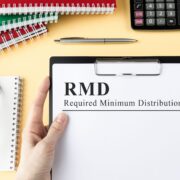KEY POINTS
- When it concerns Social Security advantages, “the earlier the claim, the steeper the penalty,” according to Shai Akabas, director of economic policy at the Bipartisan Policy Center.
- While workers are first eligible to claim at 62, holding back till age 70 could increase their advantages by as much as 76%.
- But some myths about Social Security still obstruct when it concerns making the best-claiming choice.
For most Americans, choosing when to claim Social Security retirement advantages will be among the biggest monetary decisions they ever make.
However, the difference between the right or wrong choice can be costly.
The common recipient age 65 and up relies on Social Security for half of their income.
But if a worker declares before their complete retirement age– usually age 66 or 67, depending on the year in which they were born– their benefits will be permanently minimized.
“The earlier the claim, the steeper the charge,” said Shai Akabas, director of financial policy at the Bipartisan Policy Center, which just recently launched a brand-new research paper on the subject.
Waiting to claim advantages beyond age 62, the earliest possible age when a worker can declare retirement advantages pays off. If you wait up until the complete retirement age of 67, you will receive more than 40% more each month than you would at 62, Akabas stated. Postpone claiming till age 70 and you will get more than 75% more each month.
Real-life aspects, such as job losses or declining health, can limit someone’s capability to postpone their benefits.
But there are also common mistaken beliefs that might prompt retired people to make an early declaring decision, specialists stated during a Tuesday webcast hosted by the Bipartisan Policy Center.
Misconception: Advantage cuts for older workers impend
The financial downturn triggered by the Covid-19 pandemic has not spared Social Security.
The program might lack funds sooner than had been predicted, according to current price quotes– as quickly, in truth, as 2028 or 2032. Notably, the system will still be able to pay benefits when that takes place, though they will likely be reduced.
Many potential retired people might be lured to start drawing their monthly checks early, for fear that the cash could disappear.
But people on the brink of retirement should not necessarily be stressed, said Sita Slavov, a teacher at the George Mason University Schar School of Policy and Federal government.
“I personally don’t believe this is a significant risk for individuals nearing retirement due to the fact that Social Security reform propositions typically do not cut the advantages of people nearing retirement,” Slavov stated.

Myth: When I quit working, I have to claim benefits
The date when you quit working and the date you begin claiming advantages do not need to coincide.
Yet many individuals incorrectly believe they relate, stated Jason Fichtner, a fellow at the Bipartisan Policy Center and previous principal deputy commissioner at the Social Security Administration.
It is possible to continue working at 62 and not claim benefits, Fichtner said. Or you can stop working and not take benefits.
“There is a range of choices you can do,” Fichtner stated. “However just due to the fact that you choose to quit working does not imply you have to automatically claim Social Security retirement advantages.”
Your choice to begin benefits ought to be based on your personal circumstance. If you have a disease or other factor to believe you will not live long, it may make sense to start receiving the cash early, Fichtner stated.
However the longer you wait, the greater your enduring partner’s benefits will also be if they claim based upon your record. The money will also help with health or long-lasting care expenses as far as twenty years from now, he stated.
“You can always go to Social Security tomorrow,” Fichtner stated. “You can go next week or you can go next year.
“When you require it, take it,” he included. “But you ought to hold back up until you do.”
Misconception: I should declare based on my break-even date
One crucial step people typically reference in connection with Social Security retirement advantages is the break-even date.
It’s a way to estimate how much you would be paid overall if you either take reduced advantages early or improved advantages later.
At this moment, Social Security field workplaces have done away with utilizing break-even computations when giving declaring guidance, Fichtner stated. People who were told at 62 that they would be ahead for the next 14 years may have felt encouraged to start receiving their monthly checks early, he said.
“That made it seem like it was again for them,” Fichtner said. “We never informed them that if you live then previous 76, you’ll lag for the rest of your life.”
If you wait from 62 to 70, the difference in your advantage amount can be up to 76%, he stated.
























Comments